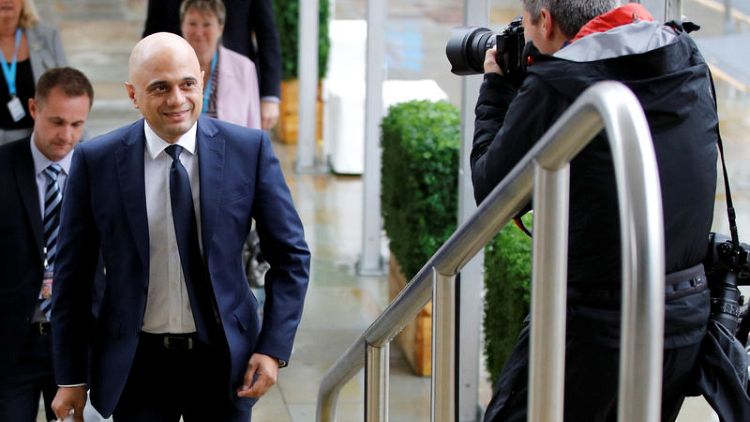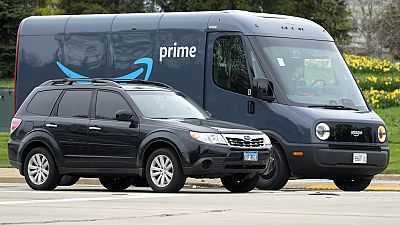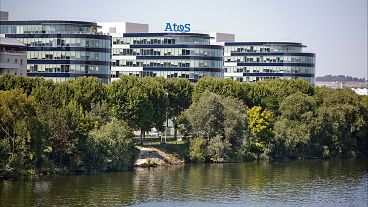By William James
MANCHESTER, England (Reuters) - British finance minister Sajid Javid pledged on Monday to improve Britain's road, broadband coverage and bus services, setting out an investment package designed to win over voters before an expected early election.
Speaking at a Conservative Party conference dominated by Britain's planned exit from the European Union, Javid will try to shift the focus to what he called "The People's Priorities" -issues the party believes matter more to voters in the long run.
He will commit 5 billion pounds ($6.14 billion) to improving fast broadband access in harder-to-reach parts of the country, announce a strategy to improve bus services, and set out how billions already set aside for road improvements will be spent.
"Investment in our infrastructure will be key to making the next decade one of renewal – boosting our economy and making life easier for people all across the country," Javid will say, according to advance extracts of his speech.
Britain is not scheduled to hold an election until 2022, but one is expected in the coming months. Prime Minister Boris Johnson's Conservatives have lost their majority in parliament and divisions over are Brexit paralysing policymaking.
Johnson has split parliament, his party, and the electorate with a pledge to deliver Brexit on Oct. 31, with or without a transition agreement - potentially exposing the British economy to food, medicine and fuel shortages.
Javid urged opposition lawmakers, who are meeting in parliament to discuss how best to prevent a so-called no-deal Brexit, to call a vote of no confidence in the government.
Asked how the government would be able to get around a law designed to prevent Johnson leaving the EU without a deal, Javid said Johnson was still aiming for an agreement and would not be announcing any alternative strategy in advance.
"Of course, every government should observe all laws at all times. We're taking a careful look at that law, but we are also very clear that our policy has not changed - we will leave on Oct. 31st," he told the BBC.
One architect of the law, member of parliament Dominic Grieve, said he thought the law was fit for purpose.
"If there were to be some dodge that the government would try to introduce, I think we could counter it."
CHEAP BORROWING
After nearly a decade of deficit-reducing spending cuts under a Conservative-led government, the recently appointed Javid has promised to rewrite the rules that underpin spending.
The new mechanism to define spending and borrowing limits has not yet been agreed, but it is expected to allow higher levels of state-funded infrastructure investment.
"Record-low interest rates - you can take advantage of that as a government when you can borrow at negative interest rates for 30 years and put it into economic infrastructure," Javid told Sky News when asked about where the money was coming from.
Javid, a 49-year-old advocate of free markets and the son of a bus driver, will devote a section of his speech to improving bus networks.
"The full benefits of our infrastructure revolution may not be felt for some time. But the work must start here and now," he will say.
The opposition Labour Party has also pledged to improve bus services as both parties look for policies beyond Brexit that will help them pick up votes in what is expected to be a tight and unpredictable election.
Polling firm Opinium said Labour gained 2 percentage points after its conference in Brighton last week, when it committed to a huge expansion of public spending, but the Conservatives still held a 12-point lead. Other polls have a much narrower gap between the two parties.
($1 = 0.8138 pounds)
(Reporting by William James, Kylie MacLellan and Elizabeth Piper; editing by Gareth Jones, Larry King)



